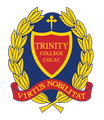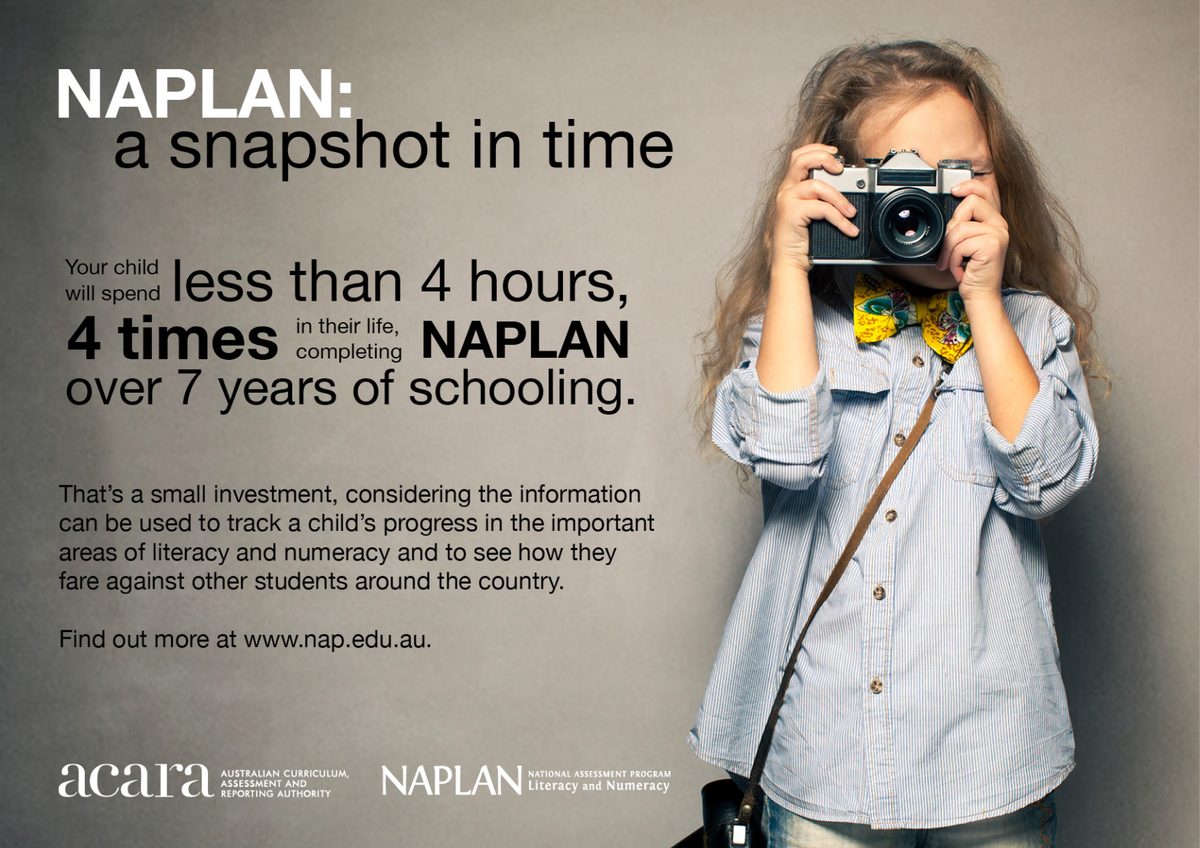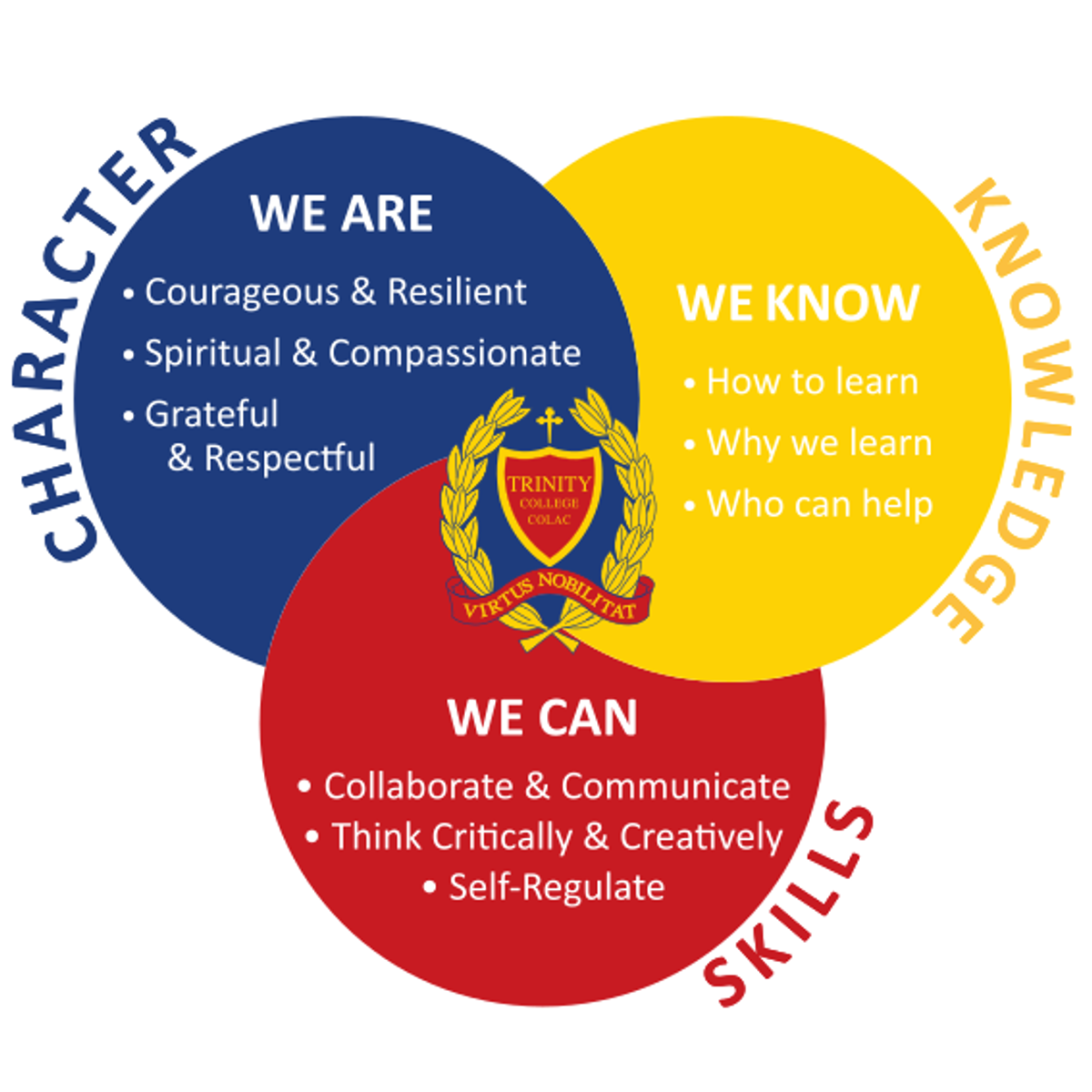NAPLAN Testing Next Week

The National Assessment Program – Literacy and Numeracy (NAPLAN) 2021 for Years 7 and 9 students will be held on Tuesday, 11th May, Wednesday, 12th May and Thursday, 13th May 2021.
NAPLAN tests assess student knowledge and skills in Writing, Reading, Language Conventions (spelling, grammar and punctuation) and Numeracy.
The results of the tests provide information for students, parents, teachers and principals which can be used to improve student achievement.
All students are expected to participate in the NAPLAN tests. During test week, catch-up tests will be available for individual students who are absent on test days. These students may undertake catch-up tests on Friday, 14th May 2021.
Support can be arranged for students with disabilities, if the student regularly uses similar support for classroom assessment tasks.
Large print, braille, electronic and black and white versions of the tests are available for students that require them.
Exemptions may be granted to students with significant intellectual disabilities and to students who have been learning English for less than one year.
If your child is eligible for support due to disability or an exemption, please discuss your concerns with Caroline Grist, the Learning Diversity Leader at Trinity College prior to the tests. Parental consent is required before any support due to disability or exemption is granted.
Students may be withdrawn from NAPLAN by their parent or carer. This is a matter for consideration by parents and carers in consultation with Caroline Grist and Ryan Geary.
If, after consultation, you decide to withdraw your child, you are required to sign a Student Withdrawal form. These forms are available from Caroline Grist.
Later in the year, you will receive your child’s personal NAPLAN report. The report will describe your child’s particular skills in Reading, Writing, Language Conventions (spelling, grammar and punctuation) and Numeracy.
The report will also show how your child performed in relation to national minimum standards. These describe the minimum acceptable standards for students across Australia.
We are confident that the information you receive as a result of your child’s participation in the NAPLAN tests will be valuable in helping you to assess your child’s progress in literacy and numeracy. For more information about the tests, please visit the VCAA website at www.vcaa.vic.edu.au or the NAP website at www.nap.edu.au.
Focus on Effort
As a part of Trinity College’s ongoing commitment to 'make a difference' we are focusing on student effort and growth to provide each student with the opportunity to be the best possible version of themselves.
To achieve this focus, we have implemented The Trinity Difference and rubrics for effective feedback. Data is increasingly being used in many areas of society including technology, business, sport and education.
At Trinity College, we are looking to expand the use of data to help better understand student learning and well-being. We can also use data to inform teaching practices and to improve student learning outcomes and growth in character, skills and knowledge by recognising individual student needs and learning gaps.
While there are currently media discussions about the validity of NAPLAN (National Assessment Program – Literacy and Numeracy) testing, at Trinity we value this data as it provides a point in time snapshot of student learning and progress.
We do not view this as a high-stakes stressful test, but a chance for students to be courageous and demonstrate their best effort in answering questions. This will ensure that the data is as accurate and informative as possible.
We can use NAPLAN data and other testing results conducted at Trinity (such as the Progressive Achievement Tests or PAT tests) to inform our professional teaching approaches and assist student learning.
We are also looking at ways to use data to support students’ well-being. Each term we will be sending students short surveys to better understand how they are feeling, attitudes about heir own effort in classes as well as technology and screen time use.
We can combine this survey data with attendance, behaviour and learning diversity data to better meet student well-being needs.
We believe that if each student puts in their maximum effort, they will become the best version of themselves and leave Trinity College to ‘make a difference’ in their chosen pathway.
Ryan Geary
Learning Leader of Data and Analytics
Paul Clohesy
Principal


